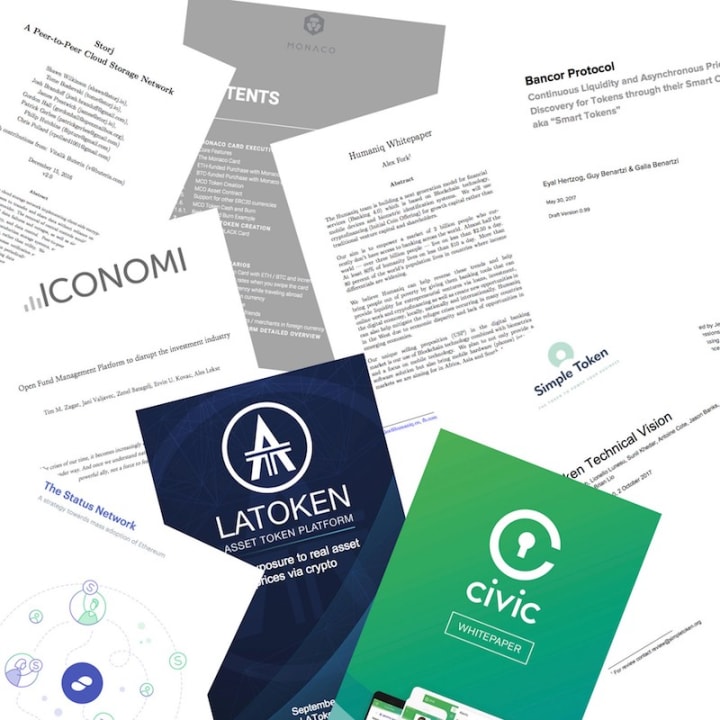What to Look for in ICO Terms and Conditions
ICO terms and conditions can hold a lot of traps for would-be investors. Here's how to protect yourself from a bad ICO.

So, you wanna invest in cryptocurrency, eh? You think you know which Initial Coin Offerings to watch and buy, right? Not so fast...
Just like with any other investment, much of your ability to get good returns and profit will be based on the investment you choose to put money into. This means you have to practice due diligence on any investment you intend to make.
Due diligence is the practice of researching every investment you make, and in the cryptocurrency world, that means you're going to need to read up on every coin you want to buy. One of the riskiest kind of investments you can choose to do is an ICO, or an Initial Coin Offering.
If you're going to drop some money in an ICO, you need to read the ICO Terms and Conditions—and make sure that you watch out for the following things.
Before we begin, let's talk about the T&C page.

Terms and Conditions (abbreviated as T&C) are the fine print that we read and agree to anytime we use an app, a website's services, or in the case of blockchain technology, a form of cryptocurrency. This document is one that we often will gloss over or outright ignore, but really shouldn't.
T&C clauses tell us the rights that we have when we use a product or invest in a technology. Not knowing your rights in the blockchain world is the easiest way to end up financially wounded.
It's important to realize why you need to read ICO Terms and Conditions before you start investing.
Believe it or not, reading this stuff isn't just a part of due diligence. It also gives you a better idea of who you're dealing with and what you should watch out for in terms of fraud, too.
A lot of scams exist on the cryptocurrency market. There are Bitcoin wallet scams, scammers who claim they can tell you how to guarantee excellent returns, as well as ICO scams.
If you want to avoid being scammed by an ICO, you will need to read the T&C clause. Believe it or not, this area tends to be the place where a lot of the signs that an Initial Coin Offering is a scam are first spotted.
If your ICO has no Terms and Conditions agreement, RUN!
The easiest way to spot an Initial Coin Offering scam is to look for the ICO that has no T&C. This means that the person in charge of making the scam didn't even bother trying to create a page to tell people their rights, and that the token will probably never be made.
By not having any legally binding terms, they can just take the cash and run.
Good ICO Terms and Conditions will have a clause that connects the sale to a token.

In a good T&C section, you will see the ICO's tokens connected to the deal you're being offered and what you should expect from the investment. For example, you should see that the T&C tells you that investing in the ICO will result in you getting some tokens in the form of cryptocurrency.
If the ICO Terms and Conditions call your investment a "non-refundable donation" or a "goodwill gift," you won't get tokens and you will likely end up never actually getting anything from your investment.
It's important to find out who all the counterparties are in the clauses, too.
When you're dealing with cryptographic currency, other parties can and will be involved. Where are they based? If you have a problem, who could you reach out to in order to ensure that you get the value you expect to see in an investment?
At the very least, you should see a legitimate legal entity as the ICO issuer. This shows that the ICO is being spearheaded by someone who is following guidelines that involve legally binding contracts.
Take a look for the terms of the token sale in the ICO Terms and Conditions.

Seeing that there's a bind between the token and the money you're putting down isn't really enough. Ideally, your ICO's T&C page will also show the initial price you should pay, the time frame, as well as conditions that highlight what will happen pre-ICO.
The more information you have, the better off you'll be when understanding your investment. Knowledge is power, and when you're dealing with a product that is barely (if at all) regulated, it's crucial to know exactly what you're dealing with.
You also should look to find out how the ICO's proceeds will be used.
Believe it or not, this information should be present in the ICO Terms and Conditions page rather than the white papers. An ICO should never be brought up "just because."
If the money that you're spending during the ICO isn't being used to bolster the value of your cryptocurrency or will even be mentioned ever again, you're looking at a terrible investment.
Think about it. Cryptocurrencies take a lot of work to promote and no mention of reinvesting money in the currency means it'll be a "dead on arrival" currency.
Avoid investing in any ICO that tells you that you hold no rights to the currency in the ICO Terms and Conditions.

Some ICO scammers will be slick about how they steal from investors. They will give you tokens, sure, but they will include a clause in the T&C that basically says you will have no right to spend them, use them as you see fit, or that they can take the tokens back at any moment without notifying you as to why.
Once they add that in, there's no reason why they shouldn't sell you tokens and then take them back without refunding you.
Keep an eye out for location laws.
Though cryptocurrency is decentralized, the companies that make blockchain currencies will have to be based somewhere. In certain countries, cryptocurrencies also might be heavily restricted, regulated, and guarded.
Location matters more than you think. In the past, ICOs have cancelled sales due to local legislation. You should be aware if the same could happen to your potential investment, too.
The ICO Terms and Conditions should try to be compliant in the jurisdiction where they were incorporated—and should also include information about that jurisdiction in the write-up. If you can't find any jurisdiction, you will be very hard-pressed to find a way to get law enforcement or courts to help you if you're scammed.
Last but not least, keep an eye out for anything that seems a bit strange.

As bad as it is to say, ICO Terms and Conditions pages shouldn't be that different from one another. They all should contain similar legal jargon, the same kinds of terms, and a general run-through of what you should expect from the ICO.
If you notice something very "out of the ordinary," you might want to think twice about investing until you get a clarification or get a better idea of what you're dealing with. You can never be too cautious with ICO investments.
About the Creator
Riley Raul Reese
Riley Reese is comic book fanatic who loves anything that has to do with science-fiction, anime, action movies, and Monster Energy drink.






Comments
There are no comments for this story
Be the first to respond and start the conversation.